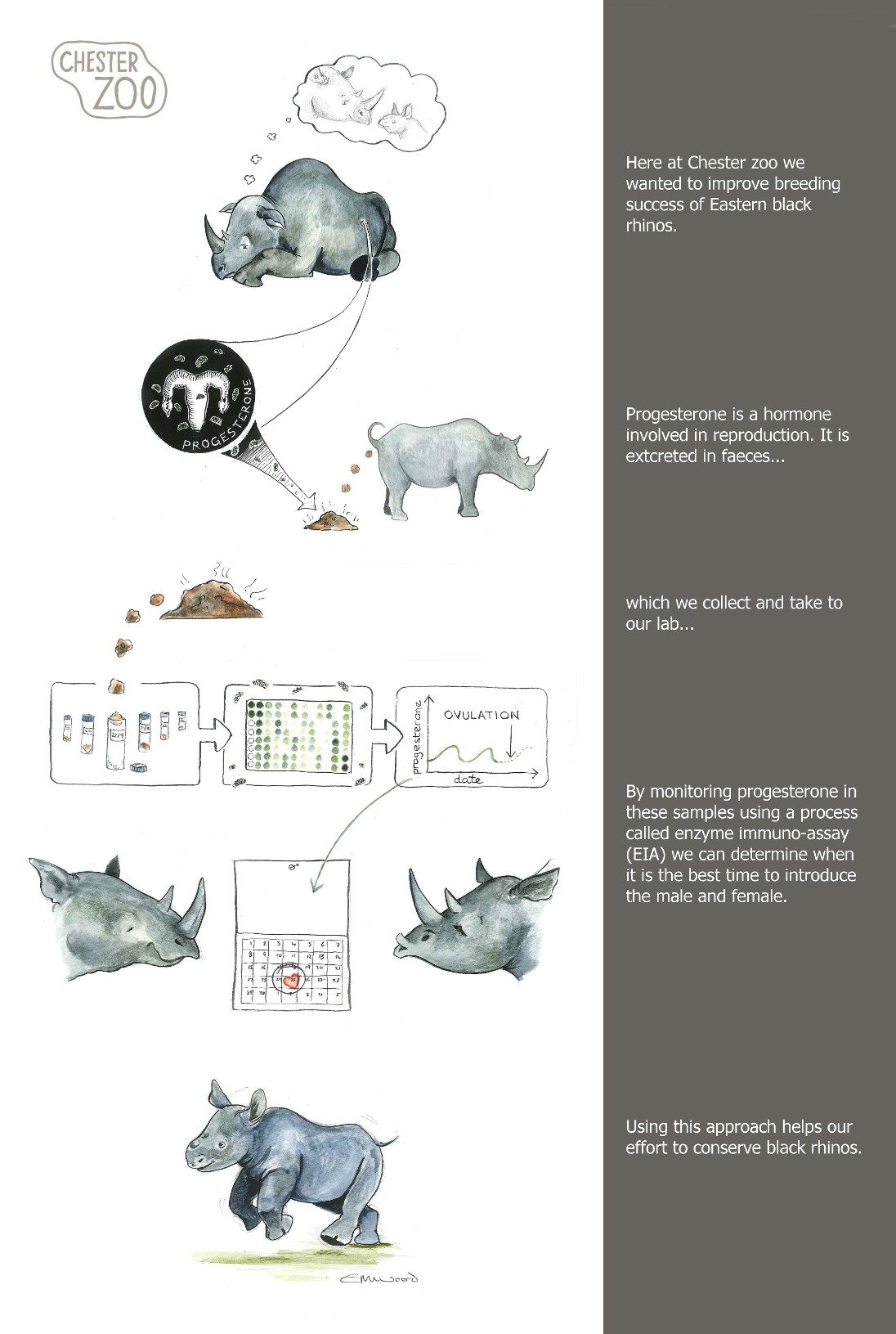It is however a sad reality that without the tireless conservation efforts of field rangers and conservationists this experience would soon be an impossible one. In addition to supporting field conservation projects, Chester Zoo works to ensure that zoo populations of black rhino are sustainable, so that they can fulfil their role as ‘insurance’ populations away from the threats faced in the wild.
Unfortunately, breeding black rhinos is not easy, and many rhinos fail to breed. For her PhD research, Katie Edwards (University of Liverpool) along with applied science staff at Chester Zoo wanted to improve the situation, and by using faecal hormone analyses we have been able to improve the breeding success of these magnificent animals. We are also beginning to understand what other factors may affect breeding success. You can find out more about our work with the rhinos here.

Rhino illustration by Emma Wood
By using techniques we have developed in the zoo, we are now working with Nick Harvey (University of Manchester) for his PhD research will try to understand what may be constraining reproduction in wild black rhinos in Kenya.